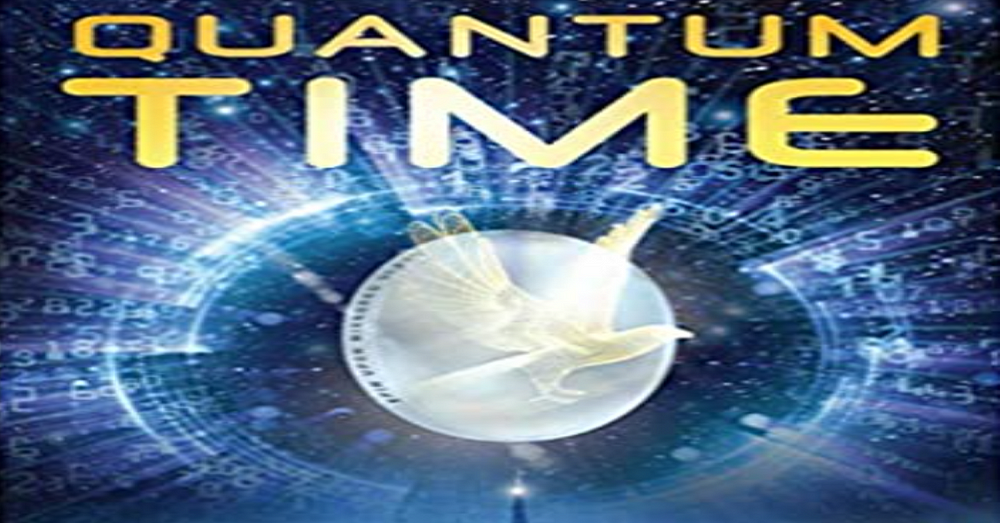Philosophical Shorts (2) Short philosophical pieces.

Michael Brooks (the science writer and journalist) writes the following:
“[Q]uantum states can evolve forward and backward in time. Researchers are even learning to do quantum experiments where information seems to come from the particles’ futures.”
Here again, the weirdness of quantum mechanics is largely a result of seeing quantum phenomena as classical phenomena. And then thinking — if only tacitly! — that all the above and much else would be a strange way for classical phenomena to behave.
Take Brooks’ words “quantum states can evolve forward and backward in time” again.
Doesn’t that simply mean that in a quantum system there’s no difference which can be observed between an evolving quantum state and its reversal? That is, there’d be no telling if a state is going forward in time or going backward in time. (There is a symmetry between the two.) However, that’s not the same as stating that quantum states actually do evolve backward in time.
In any case, which time is Michael Brooks referring to?
Does the quantum world have its (as it were) own time anyway?
Can we even compare classical time to quantum time?
Alternatively, is time an acceptable notion at all in the quantum world?
Well, despite Brooks’ words, in the Copenhagen interpretation of quantum mechanics, time is treated classically. Thus, the foundations of quantum theory treat time classically too.
Interestingly enough, it’s also worth quoting Erwin Schrödinger here. He wrote:
“This contradiction [brought about by different interpretations of the path of an electron] is so strongly felt that it has even been doubted whether what goes on in an atom can be described within the scheme of space and time.”
Yet Schrödinger continues by telling why we do think is terms of space and time:
“For we cannot really avoid our thinking in terms of space and time, and what we cannot comprehend within it, we cannot comprehend at all.”
Schrödinger's words may well partly explain Brooks’ own words, as well as much of the weirdness which is brought about by our classical descriptions of quantum phenomena.
Added to all that, it’s of course the case that Albert Einstein’s Special relativity modified the notion of time. Yet quantum mechanics — for a few decades at least — was kept largely separate from Einstein’s theories of spacetime.
To return back to Michael Brooks on quantum theory and time.
Ironically enough, the same writer in the same chapter wrote that “quantum theory takes little note of time”. And, a little later than that, he adds that “quantum theory tells us that most subatomic particles exist independently of the direction of time”! And yet in the passage above Brooks did in fact also use the words (when referring to quantum states) “moving forward and backward in time”, the “future”, and “the passage of time”.
So perhaps time is, after all, relevant when it comes to what Brooks calls “quantum states”, though not also when it comes to quantum particles.
But does that make sense?
Moreover, there must be more than one — or even many — times because that’s the only way to make sense of Brooks’ statement that
“special relativity tells us that massless particles, such a photons and the gluons that bind nuclei together, travel at the speed of light and do not even experience the passage of time”.
Yet photons take around 8 minutes and 20 seconds (“on average”) to reach us from the Sun. Thus, that’s a timespan being applied to a photon’s passage from the Sun. Does that mean that the photon itself “experience[s] the passage of time”? Well, I don’t know what Brooks means by those words.
In addition, if photons exist (as it were) outside of time (or there’s no passage of time for photons and gluons), then can such particles still exist exist in a spacetime in which time does exist? That is, do massless and timeless particles exist in time? Does the timeless exist in time?
It can of course be argued that there’s the observation of a photon (or light generally) expressed in time units and space units — and then there’s time as it applies purely to that photon itself. However, what do we know of the photon (as it were) in itself — as it’s separated from all observations and measurements?
In addition, I still don’t know what Brooks means by the words “[a photon] does not experience the passage of time” (i.e., specifically, the word “experience”). That said, it may simply be a poeticism or metaphor on Brooks’ part. In that case, how do we translate or interpret it?
Finally, the speed of light is measure in time units and spatial units. So how can light (which is made up of massless photons) be timeless? The speed of light is 300,000 kilometres per second. So what right do we have to use the measurements “300km” and “per second” when we’re supposedly dealing with timeless particles?
Again, is this the distinction between a photon (or light generally) as it is in itself and our own observations and measurements of it?
Can we sustain that distinction?









No comments:
Post a Comment